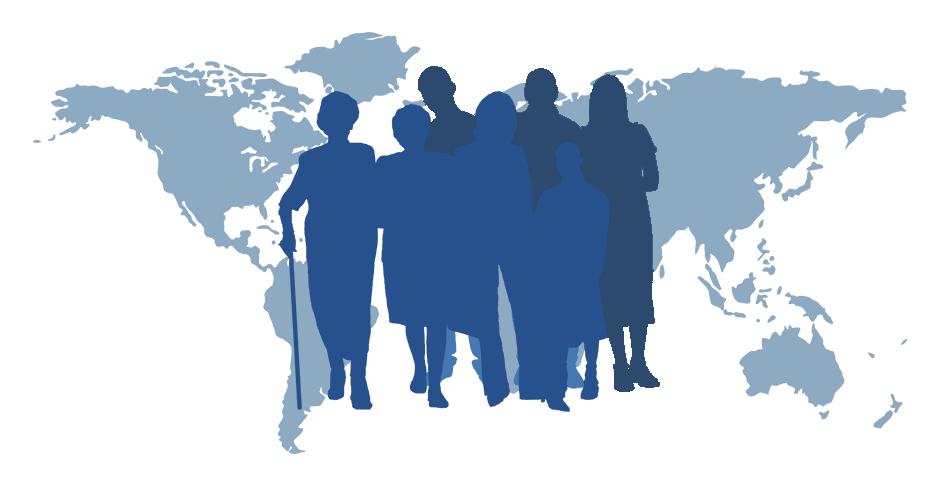
WORLD Policy Analysis Center
FACT SHEET: DECEMBER 2020
- Work is a core activity touching the vast majority of human lives. By 2030, the global labor force is expected to include 3.5 billion people, most of whom are supporting children or other family members with their earnings. For many workers, beyond income, work provides a sense of purpose, meaning, and social inclusion.
- Globally, however, billions of people work in unsafe, unfair, or discriminatory conditions:
- Each year, there are around 2.3 million work-related deaths worldwide, including 2 million caused by work-related diseases and another 300,000 caused by occupational injuries.
- Across countries, many workers struggle to make ends meet despite working a full-time job. According to the ILO, more than 1 in 5 workers’ earnings fail to lift them out of poverty.
- Discrimination at work remains commonplace, and is sometimes reinforced by the law: 98 countries place limitations on women’s employment, ranging from restrictions on manufacturing jobs (48 countries) to prohibitions on night work (26 countries).
- The COVID-19 pandemic has worsened these dynamics for many:
- Frontline workers across countries face heightened risks of exposure and infection, particularly in the absence of adequate personal protective equipment (PPE).
- As economies flounder and even when they begin to recover, the potential for employment discrimination is high: workers with disabilities, migrants, and racial and ethnic minorities are all particularly vulnerable to discrimination in contexts of higher unemployment, while global surveys consistently show that male employment is viewed as a higher priority when limited jobs are available.
- The Universal Declaration of Human Rights, binding on all 193 UN member states, guarantees the rights to decent work and non-discrimination. Likewise, the International Covenant on Economic, Social, and Cultural Rights (ICESCR), ratified by 171 countries, guarantees “just and favorable conditions of work,” including rights to adequate pay, safe and healthy working conditions, rest and limitations on hours, and paid holidays.
- As countries’ foundational documents, constitutions can powerfully advance these commitments. For example:
- In Argentina, in a case involving a construction worker who was permanently injured after a fall, the Constitutional Court ruled that adequate workers’ compensation was integral to the constitution’s protections for safe and healthy working conditions.
- In Zimbabwe, in an April 2020 ruling, the High Court ordered the government to provide PPE to all frontline health workers, after a human rights group brought a case on behalf of 1500 doctors alleging violations of the ICESCR and their constitutional rights to health and life.
- In India, the constitution’s right to free choice of public employment was used to overturn a law requiring married women to obtain their husbands’ permission before applying for government jobs.
- In Colombia, a 19-year-old woman invoked the constitution’s guarantee of freedom to choose a profession or occupation, alongside its prohibition of discrimination, to successfully challenge a military school’s refusal to enroll women.
- Globally, half of constitutions address some aspect of working conditions:
- 31% guarantee the right to safe working conditions.
- 32% guarantee the right to adequate remuneration.
- 24% guarantee the right to limited working hours, 36% grant the right to rest, and 24% guarantee a right to paid leave.
- These rights are more common in newer constitutions: just 27% of constitutions adopted before 1970 address decent work, while 71% of those adopted from 2010-2017 do so.
- In addition, 36% of constitutions protect equal rights at work:
- 11% broadly prohibit discrimination in employment, while 16% prohibit discrimination against certain groups or aspire to prohibit discrimination broadly.
- 9% of constitutions universally prohibit discrimination in hiring, as do 3% in promotions, 6% in working conditions, and 10% in terminations.
- 19% of constitutions mandate equal pay for equal work, while 10% establish this guarantee for certain groups or aspire to equal pay broadly.
- Just 12% of constitutions adopted before 1970 prohibit discrimination in at least one aspect of employment, compared to 42% of constitutions adopted from 2010-2017.
- While constitutional rights typically only apply to public employment, some countries’ provisions explicitly address the private sector, while courts in others have reached private sector discrimination through case law.
ABOUT THE DATA
This fact sheet presents findings from the following article:
Aleta Sprague, Amy Raub, and Jody Heymann (2020). Providing a foundation for decent work and adequate income during health and economic crises: constitutional approaches in 193 countries. International Journal of Sociology and Social Policy.
For more resources on constitutions and equal rights, visit constitutionsmatter.org
ABOUT WORLD
The WORLD Policy Analysis Center (WORLD) aims to improve the quantity and quality of globally comparative data on policies affecting health, development, well-being, and equity. With these data, WORLD informs policy debates; facilitates comparative studies of policy progress, feasibility, and effectiveness; and advances efforts to hold decision-makers accountable.